Întotdeauna cauți modalități de a-ți îmbunătăți sănătatea, nu-i așa? Ei bine, să te ocupi de hipertensiune nu trebuie să fie descurajant. Este important să știi ce se întâmplă în corpul tău și cum poți ajuta.
Vitamina C și Coenzima Q10 sunt două suplimente pentru hipertensiune care pot ajuta la scăderea tensiunii arteriale. Acestea funcționează prin îmbunătățirea sănătății vaselor de sânge și reducerea tensiunii arteriale. Prin luarea acestor suplimente, puteți reduce tensiunea arterială și menține nivelul tensiunii arteriale într-un interval sănătos.
Acest lucru poate reduce riscul de a suferi un accident vascular cerebral. Deci, dacă sunteți preocupat de tensiunea arterială, luați în considerare adăugarea de vitamina C și Coenzima Q10 la regimul dvs. de suplimente. Atunci cand comandati supliment natural pentru hipertensiune in Romania, asigurati-va ca va documentati in legatura cu ingredientele pentru a ba bucura de efectele produsului.
Acest articol te va ghida prin cele mai bune suplimente de sănătate pentru hipertensiune, beneficiile lor și cum le poți integra în rutina ta zilnică. Haide să ne aventurăm și să oferim sănătății tale impulsul pe care-l merită.
Înțelegerea hipertensiunii și impactul acesteia asupra sănătății
 Probabil ai auzit deja că un număr semnificativ de adulți suferă de hipertensiune arterială, dar este important să înțelegi cum poate afecta cu adevărat sănătatea ta. Hipertensiunea arterială, sau tensiunea arterială ridicată, poate cauza probleme grave de sănătate, inclusiv boli de inimă și accidente vasculare cerebrale.
Probabil ai auzit deja că un număr semnificativ de adulți suferă de hipertensiune arterială, dar este important să înțelegi cum poate afecta cu adevărat sănătatea ta. Hipertensiunea arterială, sau tensiunea arterială ridicată, poate cauza probleme grave de sănătate, inclusiv boli de inimă și accidente vasculare cerebrale.
Stilul tău de viață joacă un rol crucial în prevenirea hipertensiunii arteriale. O dietă nesănătoasă, lipsa de activitate fizică și consumul de tutun pot crește riscul. În schimb, exercițiile regulate, o dietă echilibrată și evitarea substanțelor nocive precum tutunul pot ajuta la prevenirea acesteia.
Stresul este un alt factor important. Stresul cronic, fie că este cauzat de muncă, relații sau alte surse, poate duce la hipertensiune arterială. Este crucial să gestionezi stresul eficient pentru a-ți reduce riscul. Acest lucru poate implica tehnici precum meditația, yoga sau doar să-ți iei timp pentru relaxare și activități de recreere.
Ține minte, monitorizarea regulată a tensiunii arteriale este, de asemenea, esențială. Depistarea precoce a hipertensiunii arteriale poate duce la un tratament mai eficient, prevenind în mod potențial probleme de sănătate mai grave pe viitor.
Vitaminele și mineralele esențiale pentru reglarea tensiunii arteriale
 În gestionarea tensiunii arteriale, veți constata că anumite vitamine și minerale sunt esențiale și pot fi obținute fie din dietă, fie prin suplimente. De exemplu, potasiul ajută la echilibrarea cantității de sodiu din celulele dumneavoastră, lucru care poate reduce semnificativ tensiunea arterială.
În gestionarea tensiunii arteriale, veți constata că anumite vitamine și minerale sunt esențiale și pot fi obținute fie din dietă, fie prin suplimente. De exemplu, potasiul ajută la echilibrarea cantității de sodiu din celulele dumneavoastră, lucru care poate reduce semnificativ tensiunea arterială.
Impactul alimentației asupra hipertensiunii este profund. Consumul alimentelor bogate în calciu, magneziu și acizi grași omega-3 poate contribui și la gestionarea tensiunii arteriale. Cu toate acestea, este vital să combinați aceste eforturi alimentare cu exerciții regulate, care au un rol esențial în menținerea nivelelor optime ale tensiunii arteriale.
Studiile au arătat că activitatea fizică regulată face inima mai puternică. O inimă mai puternică poate pompa mai mult sânge cu mai puțin efort, reducând forța exercitată asupra arterelor și scăzând tensiunea arterială. Mai mult, exercițiile ajută la controlul greutății, un alt aspect critic al reglării tensiunii arteriale.
Deși vitaminele și mineralele sunt cruciale, ele fac parte dintr-o imagine mai largă. Veți avea nevoie de o abordare cuprinzătoare, inclusiv o dietă echilibrată, exerciții regulate și un stil de viață sănătos, pentru a gestiona eficient hipertensiunea. Discutați cu medicul dumneavoastră despre cea mai bună combinație de aceste elemente pentru nevoile dumneavoastră specifice. Ei vă pot îndruma către suplimentele potrivite, schimbările alimentare și regimul de exerciții adecvat.
Suplimente pe bază de plante care promovează sănătatea inimii
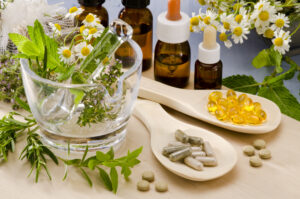 În timp ce gestionați hipertensiunea, veți descoperi că, pe lângă vitamine și minerale, suplimentele pe bază de plante joacă și ele un rol semnificativ în promovarea sănătății inimii. Multe dintre aceste remedii naturale pentru sănătatea inimii pot fi o adăugare valoroasă la regimul dumneavoastră de sănătate.
În timp ce gestionați hipertensiunea, veți descoperi că, pe lângă vitamine și minerale, suplimentele pe bază de plante joacă și ele un rol semnificativ în promovarea sănătății inimii. Multe dintre aceste remedii naturale pentru sănătatea inimii pot fi o adăugare valoroasă la regimul dumneavoastră de sănătate.
Un exemplu în acest sens este măceșul. Mai multe studii au arătat eficacitatea sa în îmbunătățirea funcției cardiovasculare, reducerea durerii în piept și chiar ajutorul în controlul tensiunii arteriale ridicate.
Un alt supliment, usturoiul, s-a dovedit benefic în reducerea nivelului de colesterol, contribuind astfel la sănătatea inimii.
Cu toate acestea, este important să luați în considerare siguranța suplimentelor pe bază de plante. Înainte de a începe orice supliment nou, ar trebui să consultați un profesionist în domeniul sănătății. Unele suplimente pe bază de plante pot interacționa cu medicamentele pe care deja le luați, cauzând efecte secundare potențial dăunătoare.
În plus, în timp ce aceste suplimente pot susține sănătatea inimii, ele nu înlocuiesc un stil de viață sănătos. Exercițiile regulate, o dietă echilibrată și gestionarea stresului sunt în continuare vitale în gestionarea hipertensiunii.
Cum să integrați suplimentele de sănătate în rutina zilnică
 Haide să vedem cum poți integra suplimentele de sănătate în rutina ta zilnică fără probleme. Adaptarea rutinei zilnice este esențială pentru acest proces. Începe prin a înțelege nevoile corpului tău și cel mai bun moment pentru a lua suplimentele. Cercetările arată că absorbția și eficacitatea suplimentelor pot varia în funcție de momentul administrării.
Haide să vedem cum poți integra suplimentele de sănătate în rutina ta zilnică fără probleme. Adaptarea rutinei zilnice este esențială pentru acest proces. Începe prin a înțelege nevoile corpului tău și cel mai bun moment pentru a lua suplimentele. Cercetările arată că absorbția și eficacitatea suplimentelor pot varia în funcție de momentul administrării.
De exemplu, vitaminele solubile în grăsimi precum A, D, E și K se absorb cel mai bine atunci când sunt luate în timpul meselor. Pe de altă parte, vitaminele solubile în apă precum B și C pot fi luate pe stomacul gol. Citește întotdeauna eticheta pentru instrucțiuni specifice și consultă medicul tău în caz de îndoială.
Stabilește momentele de administrare a suplimentelor la fel cum stabilești momentele meselor. Integrarea lor în activitățile tale zilnice, precum micul dejun, prânzul sau cina, te poate ajuta să nu uiți să le iei în mod constant. Poți, de asemenea, să-ți setezi memento-uri pe telefon sau să pui sticla de suplimente într-un loc vizibil.
În ceea ce privește momentul administrării suplimentelor, ia în considerare stilul de viață și rutina ta zilnică. Dacă te trezești devreme, ar putea fi mai bine să le iei dimineața. Cu toate acestea, dacă ești o persoană de noapte, s-ar putea să preferi să le iei seara. Îți amintesc, consecvența este cheia pentru a beneficia pe deplin de suplimentele tale de sănătate.
 Venele varicoase reprezintă o afecțiune în care vasele de sânge devin dilatate și umflate, de obicei localizate la nivelul membrelor inferioare. Acestea se dezvoltă atunci când valvele venelor nu funcționează corect, ceea ce duce la acumularea de sânge și la creșterea presiunii în vene. Rezultatul este o dilatare a venelor, în special a celor de la nivelul picioarelor.
Venele varicoase reprezintă o afecțiune în care vasele de sânge devin dilatate și umflate, de obicei localizate la nivelul membrelor inferioare. Acestea se dezvoltă atunci când valvele venelor nu funcționează corect, ceea ce duce la acumularea de sânge și la creșterea presiunii în vene. Rezultatul este o dilatare a venelor, în special a celor de la nivelul picioarelor.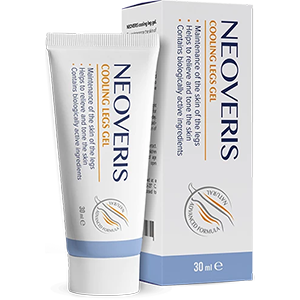 Neoveris este un produs inovator conceput pentru a aborda
Neoveris este un produs inovator conceput pentru a aborda  Varixil Forte este o cremă inovatoare special concepută pentru a elimina problemele legate de venele varicoase și varice si reda frumusetea pielii și reducerea disconfortului. Această afecțiune comună afectează multe persoane, provocând disconfort și afectând calitatea vieții. Varixil Forte vine în ajutorul celor care se confruntă cu această problemă, oferind o soluție naturală și eficientă pentru a reduce simptomele și a îmbunătăți starea generală a picioarelor.
Varixil Forte este o cremă inovatoare special concepută pentru a elimina problemele legate de venele varicoase și varice si reda frumusetea pielii și reducerea disconfortului. Această afecțiune comună afectează multe persoane, provocând disconfort și afectând calitatea vieții. Varixil Forte vine în ajutorul celor care se confruntă cu această problemă, oferind o soluție naturală și eficientă pentru a reduce simptomele și a îmbunătăți starea generală a picioarelor.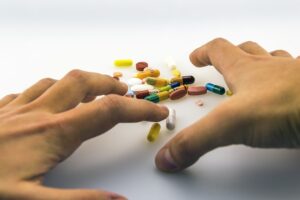 Pastilele de slăbit sunt suplimente alimentare care au ca scop principal reducerea în greutate si scaderea la apetitul din organism.. Acestea pot avea diverse mecanisme de acțiune, cum ar fi suprimarea apetitului, accelerarea metabolismului sau reducerea absorbției grăsimilor din alimente. Cu toate acestea, este important să se înțeleagă că pastilele de slăbit nu reprezintă o soluție magică pentru obezitate si slabit și trebuie utilizate în combinație cu o dietă echilibrată și exerciții fizice regulate pentru a obține rezultatul dorit si absorbtia grasimilor.
Pastilele de slăbit sunt suplimente alimentare care au ca scop principal reducerea în greutate si scaderea la apetitul din organism.. Acestea pot avea diverse mecanisme de acțiune, cum ar fi suprimarea apetitului, accelerarea metabolismului sau reducerea absorbției grăsimilor din alimente. Cu toate acestea, este important să se înțeleagă că pastilele de slăbit nu reprezintă o soluție magică pentru obezitate si slabit și trebuie utilizate în combinație cu o dietă echilibrată și exerciții fizice regulate pentru a obține rezultatul dorit si absorbtia grasimilor. Pastilele de slăbit funcționează într-o varietate de moduri, în funcție de ingredientele si plante și de marca produsului. În general, aceste pastile sunt concepute pentru a sprijini pierderea în greutate prin suprimarea apetitului, accelerarea metabolismului sau blocarea absorbției grăsimilor.Aceste pastile sunt de obicei administrate pe cale orală și ar trebui utilizate conform instrucțiunilor oferite de producator, cum ar fi
Pastilele de slăbit funcționează într-o varietate de moduri, în funcție de ingredientele si plante și de marca produsului. În general, aceste pastile sunt concepute pentru a sprijini pierderea în greutate prin suprimarea apetitului, accelerarea metabolismului sau blocarea absorbției grăsimilor.Aceste pastile sunt de obicei administrate pe cale orală și ar trebui utilizate conform instrucțiunilor oferite de producator, cum ar fi  Sănătatea și siguranța sunt cele mai mari preocupări atunci când vine vorba de utilizarea suplimentelor alimentare, inclusiv a pastilelor de slăbit. Efectele secundare ale pastilelor de slăbit sunt în mare parte determinate de ingredientele conținute și de doza administrată. Mulți producători recomandă un anumit dozaj pentru a se asigura că produsul lor este nu numai eficient, dar și sigur.
Sănătatea și siguranța sunt cele mai mari preocupări atunci când vine vorba de utilizarea suplimentelor alimentare, inclusiv a pastilelor de slăbit. Efectele secundare ale pastilelor de slăbit sunt în mare parte determinate de ingredientele conținute și de doza administrată. Mulți producători recomandă un anumit dozaj pentru a se asigura că produsul lor este nu numai eficient, dar și sigur. Acum, să ne adâncim în ceea ce înseamnă de fapt hemoroizii și ce poate duce la apariția lor în primul rând. Hemoroizii, cunoscuți și sub numele de pile, sunt vene umflate în rectul inferior sau în anus. Aceștia pot fi interni sau externi, în funcție de locația și gravitatea lor.
Acum, să ne adâncim în ceea ce înseamnă de fapt hemoroizii și ce poate duce la apariția lor în primul rând. Hemoroizii, cunoscuți și sub numele de pile, sunt vene umflate în rectul inferior sau în anus. Aceștia pot fi interni sau externi, în funcție de locația și gravitatea lor.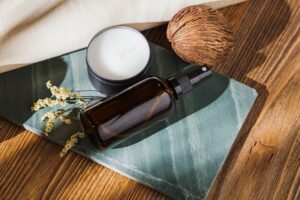 Imaginează că poți găsi alinare pentru disconfortul și durerea hemoroizilor prin intermediul suplimentelor naturale care funcționează prin reducerea inflamației, calmand mâncărimea și oprirea sângerării. Suplimentele naturale sunt o alternativă excelentă la medicamentele convenționale, deoarece utilizează ingrediente pe bază de plante pentru a îmbunătăți simptomele fără efecte secundare nedorite.
Imaginează că poți găsi alinare pentru disconfortul și durerea hemoroizilor prin intermediul suplimentelor naturale care funcționează prin reducerea inflamației, calmand mâncărimea și oprirea sângerării. Suplimentele naturale sunt o alternativă excelentă la medicamentele convenționale, deoarece utilizează ingrediente pe bază de plante pentru a îmbunătăți simptomele fără efecte secundare nedorite.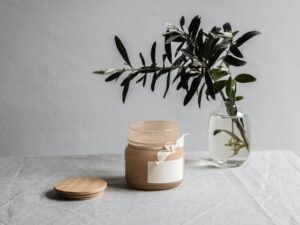 Înainte de a începe să luați orice supliment natural pentru hemoroizi, este esențial să vă luați în considerare nevoile individuale, bugetul și preferințele. Există multe tipuri diferite de suplimente disponibile pe piață, fiecare cu propriile beneficii și dezavantaje unice.
Înainte de a începe să luați orice supliment natural pentru hemoroizi, este esențial să vă luați în considerare nevoile individuale, bugetul și preferințele. Există multe tipuri diferite de suplimente disponibile pe piață, fiecare cu propriile beneficii și dezavantaje unice.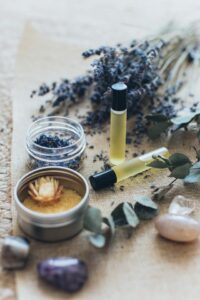
 Articulațiile sunt conexiunile între oase care permit mișcarea și oferă susținere, iar înțelegerea modului în care funcționează este crucială pentru a găsi cele mai bune produse pentru sănătatea și ameliorarea durerii articulare.
Articulațiile sunt conexiunile între oase care permit mișcarea și oferă susținere, iar înțelegerea modului în care funcționează este crucială pentru a găsi cele mai bune produse pentru sănătatea și ameliorarea durerii articulare. Știi sentimentul de a fi blocat în nisipul mișcător? Așa te poate face să te simți durerea articulară – ca fiecare mișcare este o luptă.
Știi sentimentul de a fi blocat în nisipul mișcător? Așa te poate face să te simți durerea articulară – ca fiecare mișcare este o luptă.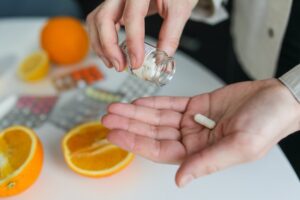 Poate te întrebi care sunt cele mai bune suplimente pentru sănătatea articulațiilor. Ei bine, există mai multe opțiuni din care poți alege. Acestea includ glucozamina, condroitina, colagenul, omega-3 și acidul hialuronic. Aceste produse au demonstrat că reduc inflamația și îmbunătățesc funcția cartilajului. Acest lucru poate ajuta la prevenirea sau întârzierea degenerării articulare. Deci, dacă vrei să ai grijă de articulațiile tale și să reduci durerea articulară, aceste suplimente ar putea merita să le iei în considerare.
Poate te întrebi care sunt cele mai bune suplimente pentru sănătatea articulațiilor. Ei bine, există mai multe opțiuni din care poți alege. Acestea includ glucozamina, condroitina, colagenul, omega-3 și acidul hialuronic. Aceste produse au demonstrat că reduc inflamația și îmbunătățesc funcția cartilajului. Acest lucru poate ajuta la prevenirea sau întârzierea degenerării articulare. Deci, dacă vrei să ai grijă de articulațiile tale și să reduci durerea articulară, aceste suplimente ar putea merita să le iei în considerare.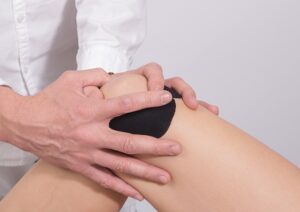 Prin efectuarea unor schimbări simple în stilul de viață, cum ar fi menținerea unei greutăți sănătoase și exercițiile regulate, puteți lua măsuri proactive pentru a preveni sau reduce durerea articulară. Fiind supraponderal pune o presiune suplimentară asupra articulațiilor, în special în genunchi și șolduri, ceea ce poate duce la uzură în timp. Prin pierderea în greutate prin intermediul unei diete echilibrate și a exercițiilor regulate, nu numai că puteți reduce această presiune, dar puteți îmbunătăți și sănătatea dumneavoastră generală.
Prin efectuarea unor schimbări simple în stilul de viață, cum ar fi menținerea unei greutăți sănătoase și exercițiile regulate, puteți lua măsuri proactive pentru a preveni sau reduce durerea articulară. Fiind supraponderal pune o presiune suplimentară asupra articulațiilor, în special în genunchi și șolduri, ceea ce poate duce la uzură în timp. Prin pierderea în greutate prin intermediul unei diete echilibrate și a exercițiilor regulate, nu numai că puteți reduce această presiune, dar puteți îmbunătăți și sănătatea dumneavoastră generală.